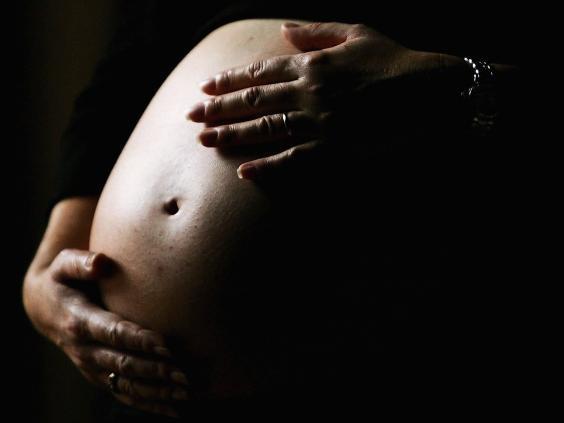Pregnant refugees 'facing unacceptable delays in maternity payments'
Destitute women left unable to eat properly during pregnancy or provide for babies once they are born due to administrative delays in financial support, warns British Red Cross

Pregnant refugees and asylum seekers are facing “unacceptable delays” in receiving essential maternity support, a leading charity has warned.
Women are being left unable to eat properly during pregnancy or buy essential equipment such as car seats once their babies are born due to administrative delays in financial support they are entitled to from the Government, according to the British Red Cross.
The charity came to the aid of 5,438 people without adequate access to food, housing or healthcare between January and March this year, including providing nappies to 70 women and baby packs to 94.
Destitute women who are asylum seekers are eligible for additional financial support during pregnancy of £3 a week, a one-off maternity grant of £300 (£250 for refused asylum seekers who receive Section 4 support), and additional payments for children under the age of three.
But the Red Cross has warned that these payments — which it says are "arguable not enough anyway" — are frequently delayed, leaving vulnerable women unprepared for their babies’ arrival, and charities having to stand in to provide support.
One woman living in Portsmouth had received no additional payments 40 weeks into her pregnancy before the charity intervened and provided cash for food and other essential costs. It also fell to the charity to provide the new mother with a car seat — without which it is impossible to leave hospital — as well as nappies, baby wipes and money for a taxi when she went into labour.
Lilly Barritt, refugee support coordinator at the British Red Cross, said pregnant women who hadn’t received their support were sometimes left with no means to get to hospital for appointments, unable to afford a car seat or sometimes even without the cash to buy a bus ticket.
“There has definitely been an increase in delays in the last year and a half. Some women aren’t getting support until after the baby’s born, which means many of them have no means of getting to hospital,” Ms Barritt told The Independent.
“They have no means of travelling —particularly women on Section 24 who don’t get any cash support whatsoever — so they couldn’t even get a bus to the hospital if that was their only option.
“They can’t buy a car seat, or nappies or clothes or anything. Obviously car seats are quite expensive when you only get £36.95 a week, and if you’re not even getting the additional payment, which is only £3 anyway — arguably not enough.”
Refugees welcome here: Protesters demand UK resettle more migrants in response to refugee crisis
Show all 7Ms Barritt added that female asylum seekers were already vulnerable by the fact that, due to the Home Office’s system of dispersing asylum seekers across the country, they are often located far from family and other support networks.
“These women are made vulnerable already by the fact that they’re here as an asylum seeker. They’re often very socially isolated. They don’t have the same support networks because of the lack of choice in where they’re dispersed to in the asylum accommodation,” Ms Barritt said.
“So they are isolated and going through really quite an emotional experience of having a baby without actually having any support, and they’re not even able to get those practical essential things in place.”
Alex Fraser, director of refugee support at the British Red Cross, described the delays as "shameful", saying: “These figures show how our asylum system can leave anyone destitute, even new mothers with infant children. Many of these women have already suffered appallingly, arriving in the UK after fleeing conflict or persecution and hoping for sanctuary.
“It’s shameful that bureaucracy and administrative delays are leaving women to rely on charity to eat sufficiently during pregnancy and to get hold of nappies for their new babies. We are extremely concerned by the unnecessary stress this causes to women who are already significantly vulnerable because of the fact they are seeking asylum.”
Financial support for asylum seekers is set to be restricted further when Immigration Act regulations are published and enacted, repealing Section 95 support — which provides accommodation and £37 a week for each member of the family — for families with children who have been refused asylum.
The Red Cross warned these cuts could leave even more families with infants in poverty, and has urged the Government that pregnant women and families with children must continue receiving Section 95 support, regardless of immigration status.
A report released by the British Red Cross in November 2016, A Healthy Start?, found that pregnant asylum seeking women and new mothers in Scotland were being housed in dirty and cramped housing with carpets which were infested.
Subscribe to Independent Premium to bookmark this article
Want to bookmark your favourite articles and stories to read or reference later? Start your Independent Premium subscription today.

Join our commenting forum
Join thought-provoking conversations, follow other Independent readers and see their replies